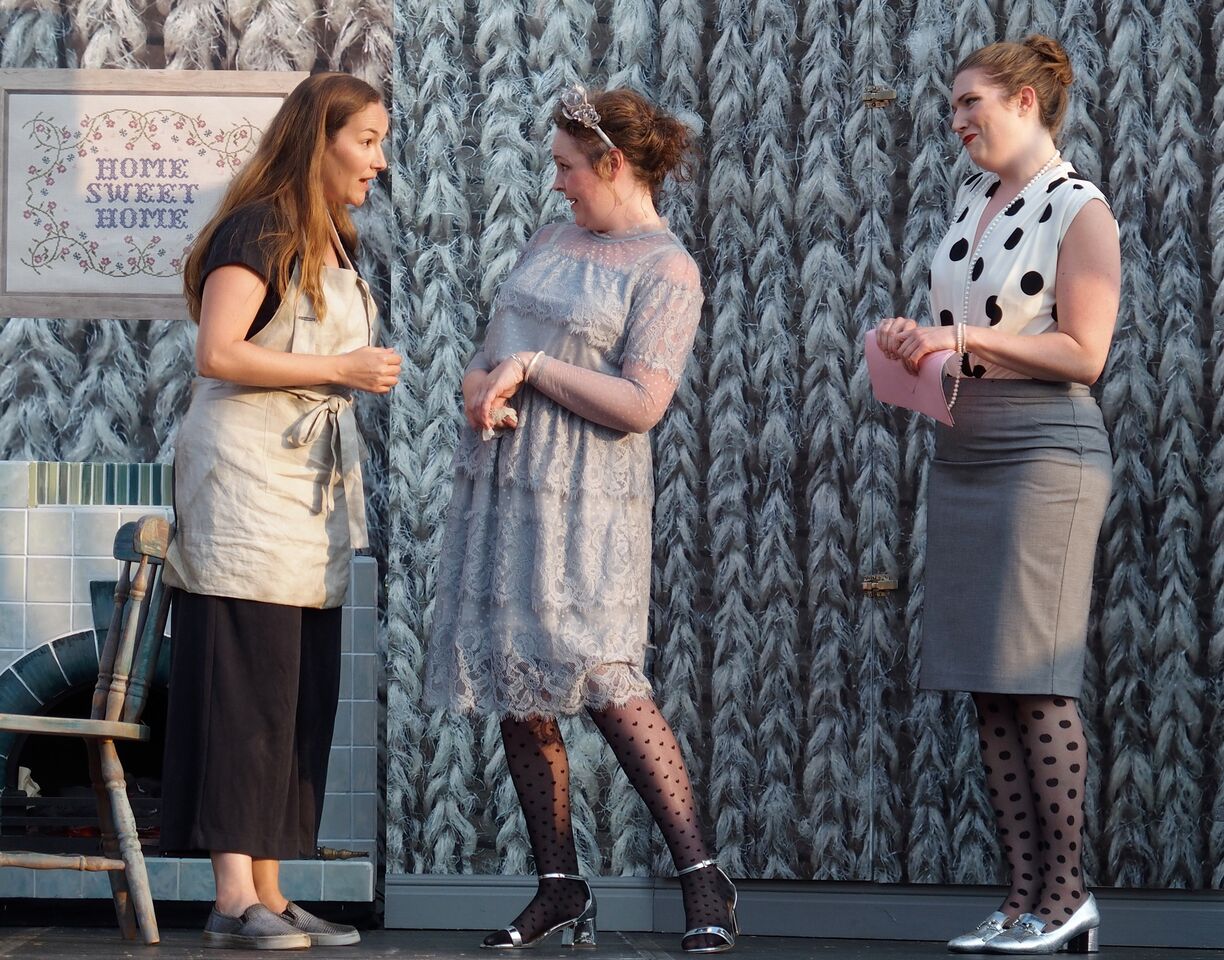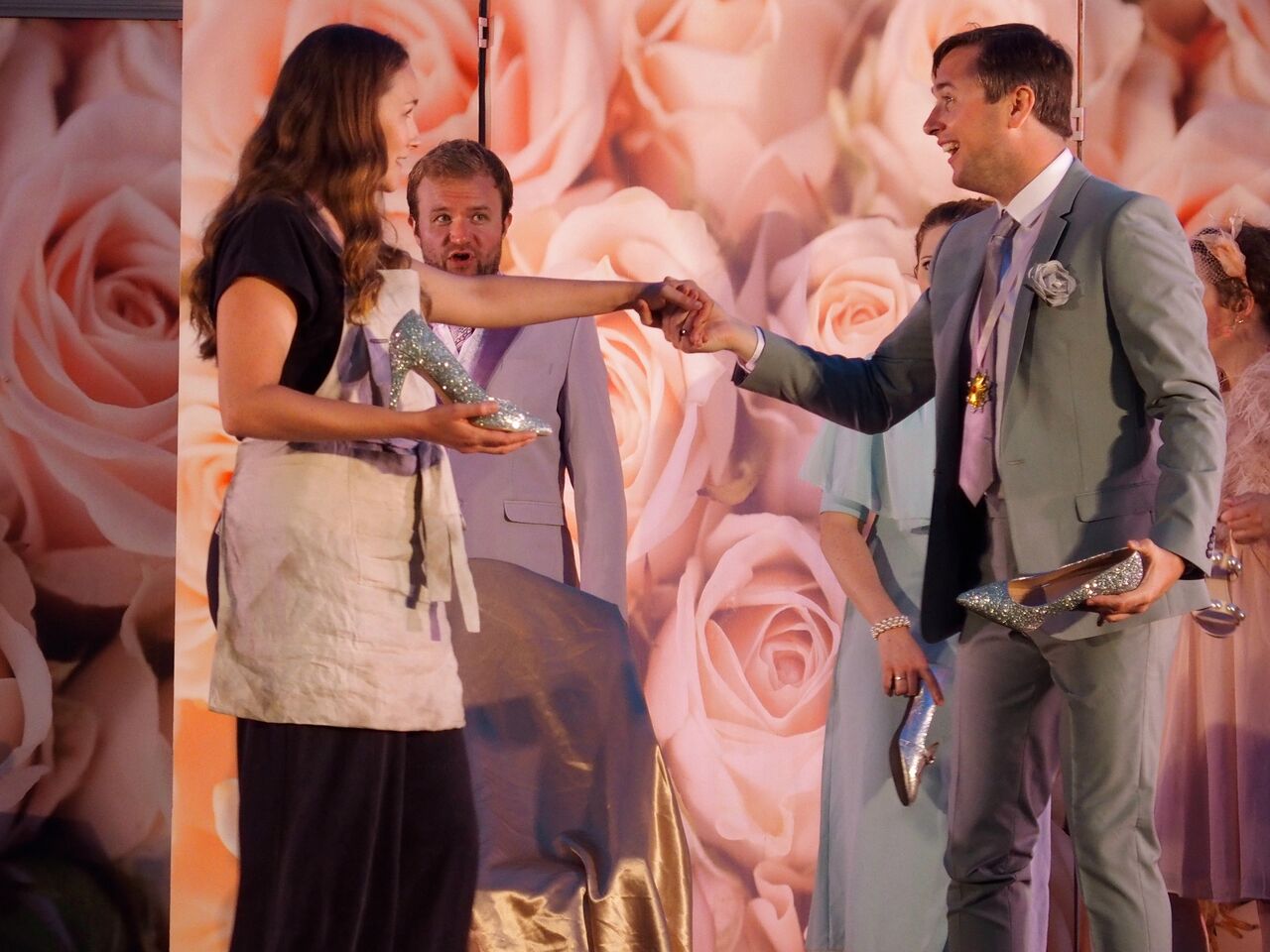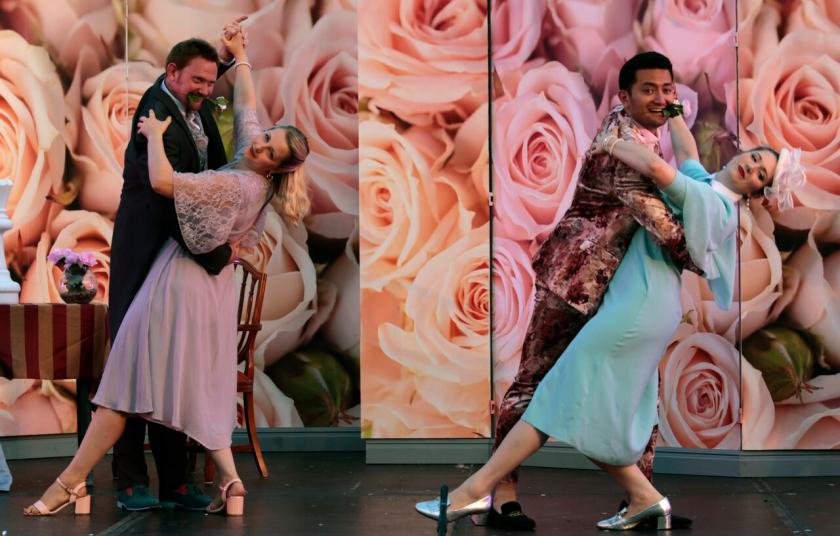Cinderella as opera in French: of late, the palm has always gone to Massenet's adorable (as in a-dor-Ah-bler) confection, and it should again soon when Glyndebourne offers a worthy home to the master's magic touch. The Cendrillon of Maltese-born honorary Parisian Nicolas Isouard, aka Nicolò, clearly had its day after the 1810 premiere, but it was eclipsed by Rossini's La Cenerentola coming along seven years later, and with good reason. The muse assigned to Rossini did not visit mostly pedestrian Isouard, though his approach is compact and briefly steps out of the generic with two pretty sets of minor-key couplets for its hero and heroine. Seen on a sunny summer evening in a country house, it may well have charmed throughout, but a fine company has to work extra-hard in St John's Smith Square.
Their energetic efforts do eventually pay off. Jeremy Gray's designs - knitwear, not sure why, for the home of Baron de Montefiascone, floral wallpaper for the ball at which Cinderella can disguise her identity by holding a single rose - work as well as they can in a very small space, blocking out most of the orchestra (conductor Harry Sever is seen on two large screens). Gray's direction is more village-hall antics, with too much mugging from the singers and a couple of gimmicks designed to fill out the longer numbers with business that doesn't always read.  It may be easiest for the ladies playing capricious-spiteful stepsisters Clorinde and Tisbe, but these are the two finest singing actors on the stage. Since the mezzo role of Cinderella was written for a sweet but modestly voiced teenager, the vocal plums go to the sopranos. Aoife O'Sullivan's Clorinde shines in a high-lying Spanish entertainment at the palace, to a slightly gauche choreography; Jenny Stafford's Tisbe steals the show in a surprisingy big aria of regret after the ball, drawing all eyes to her focused acting and meaningful delivery of the text, such as it is, at every point: star quality already (the two pictured above with Kate Howden's Cendrillon).
It may be easiest for the ladies playing capricious-spiteful stepsisters Clorinde and Tisbe, but these are the two finest singing actors on the stage. Since the mezzo role of Cinderella was written for a sweet but modestly voiced teenager, the vocal plums go to the sopranos. Aoife O'Sullivan's Clorinde shines in a high-lying Spanish entertainment at the palace, to a slightly gauche choreography; Jenny Stafford's Tisbe steals the show in a surprisingy big aria of regret after the ball, drawing all eyes to her focused acting and meaningful delivery of the text, such as it is, at every point: star quality already (the two pictured above with Kate Howden's Cendrillon).
There's more top-notch singing from Nicholas Merryweather as Alidor, the royal sage whose enlightened guidance would give Rossini the cue to make the story all about goodness rewarded, stripped of the magic. Which is rather indeterminate here, involving only a floaty chorus at the beginning of Act Two which is also the main subject of the harp and horn led Overture. Adolphe Adam was right when he described Isouard's work as "une féerie sans féerie", ie a fairy-tale without enchantment; in his excellent programme note, Gray also quotes Weber's observation on "the routine nature of practically every piece". That early master of the supernatural in music was right, so frankly why disinter the work? On the clumsiness of the orchestration, though, he's proved wrong by Sever and CHROMA, drafted in for this London performance only; the scoring for woodwind in pairs - some lovely oboe writing especially - seems crisp and clear (I presume this is the original and not Adam's retouching).  Most disappointing is Isouard's inability to rise to moonshine for the love between Cinderella and her Prince; their duets are utterly generic, though sweetly enough done by Kate Howden and Bradley Smith (pictured above, aha!, with Alistair Ollerenshaw as the Baron de Montefiascone). Howden has a warm lower register, though the tone thins higher up, and her words were unintelligible in the difficult St John's acoustics. The dialogue has a certain naive charm, but would have sounded better in the original French; and the rest of cast is rather too campy with it. Still, with the slipper finding its mate and the rose comes into its own again, it was hard not to feel a twinge of pleasure at the general warmth of the presentation. Pauline Viardot's Cendrillon next, anybody?
Most disappointing is Isouard's inability to rise to moonshine for the love between Cinderella and her Prince; their duets are utterly generic, though sweetly enough done by Kate Howden and Bradley Smith (pictured above, aha!, with Alistair Ollerenshaw as the Baron de Montefiascone). Howden has a warm lower register, though the tone thins higher up, and her words were unintelligible in the difficult St John's acoustics. The dialogue has a certain naive charm, but would have sounded better in the original French; and the rest of cast is rather too campy with it. Still, with the slipper finding its mate and the rose comes into its own again, it was hard not to feel a twinge of pleasure at the general warmth of the presentation. Pauline Viardot's Cendrillon next, anybody?













